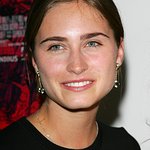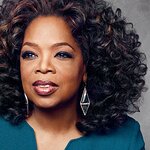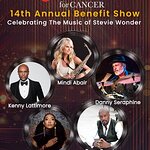By Abhishek Seth on
Lauren Bush – model, co-founder of FEED Projects and designer of the world renown charity FEED Bags – recently talked to Look To The Stars about her views on World Hunger.
World Hunger is your thing—you’re known for it, and esteemed for it. Was there someone, or something that inspired you?
I got engaged with the issue of World Hunger after traveling with the U.N. World Food Programme. I was able to go and visit various sites with them—in Asia, Latin America, Africa. And through that, I felt really compelled to do more and give back.
Why should World Hunger take priority: besides the fact that it can stimulate the current global economy?
If kids are hungry, they are not going to school. They are not learning. They are not growing properly. Essentially, human potential is wasted, when people go hungry.
What about the UN World Food Programme attracted you?
The developmental issues I was interested in all intersected with Hunger. Learning more and seeing Hunger first-hand were my initial interests in going on trips with WFP — because often World Hunger is something a little bit off the radar… because it’s so overwhelming, and persistent. But when you go and you see the people who are actually struggling day to day—they are not statistics.
Your FEED Bags are classy, organic, and thought provoking. With their proceeds, how many children have you fed so far?
We have been able to give over 50 million schools meals to kids around the world.
How ecstatic are you when celebrities like Emma Watson and Reese Witherspoon are seen wearing your FEED bags?
It’s very cool, because we don’t send bags out to celebrities, like a lot of fashion companies do. When anyone is seen carrying our products, whether they are celebrities or not, it’s truly because they have supported the cause. It’s genuine.
A common one-liner at dinner is: “Finish that: There are kids starving in Africa.” How can ordinary people like me actually help tackle World Hunger?
I started FEED out of frustration, where I didn’t quite know myself even what I could do to really help. That’s when I thought of the FEED bag.
Each product we make has a number on it, and that very clearly signifies the impact that product will have. “You buy the FEED 100 bag: It’s going to feed one hundred children in school for one year.” So, it’s super tangible. That’s really what FEED’s about.
We also encourage people to just make donations to the FEED Foundation. So, it is not just about buying a product, but it’s about taking that first step and getting involved.
It’s just about being mindful. Volunteering locally is something easy and very fulfilling that individuals can do. There’s obviously hunger that’s persistent for many in America.
FEED has worked with numerous brands like Lord & Taylor, Harrods, and Kenneth Cole. When accepting these types of partnerships, what do you look for in a company?
There has to be a will and a want for them to give back.
What about Kenneth Cole’s mission, for example, did you find fit?
Some companies we have worked with have had more of a social mission built into their company. It does make it easier when companies—like Kenneth Cole—are used to giving back, and having social messaging part of what they do really well. But, it doesn’t mean a company has to, in order for us to work with them.
The ethical clothing-line Lauren Pierce for Calypso is another philanthropic arm of yours. How does it empower women?
All the fabrics are hand-dyed by the women of the Congo, which is a tough, war-torn area right now. The women there are a part of this fabric-dying co-op—they are supporting themselves, and their families through working. And we are able to support them by buying fabric.
The Lauren Pierce collection is also environmentally-conscious. Why do you think iconic fashion brands, like Polo Ralph Lauren, should steadily phase in sustainably produced clothes and styles?
It’s the coming ways of just being more conscious and—I think we can all do a better job in what we’re doing. Because it’s not sustainable, in terms of how we are producing everything we consume.
So, I wouldn’t single out one specific company. It’s a challenge for the fashion industry as a whole, to get behind it, and figure out more innovative solutions for sustainable production and materials.
Oprah recently hosted a gala in honor of your philanthropic father-in-law, Ralph Lauren, venerating his leadership against breast cancer. You must have been so proud of him.
It was really a special night for him, and for my family, including me, and everyone who supported him.
Do you see a future partnership between The FEED Foundation and the The Ralph Lauren Foundation?
I think it’s wonderful what they do for cancer patients. It’s really commendable. But, in terms of FEED’s mission, I think it’s very different, our cause and theirs.
Talking about the fashion industry, as a seasoned model yourself, sitting for the most recognizable magazines in the world—Vogue, W, Marie Claire—what are your thoughts on the controversial trend in high-fashion photography: the emaciated look?
Personally, I think women are more beautiful when they’re healthy looking.
To understand what 3 million people have been suffering for months now in the Horn of Africa, have you ever fasted?
I have. You really realize how important food is, and nutrients and energy are. It gives a heightened conscious and awareness of what it means to be hungry—even if it is just for a day.
You are not even 30 yet; and you embody the crusade against World Hunger. Where do you want to be on this issue in the next 10 years?
I want to hopefully have been able to raise more awareness, and more needed funds for the programs and organizations that are effectively fighting World Hunger on the ground.
I hope that FEED is just a conduit for people to be able to get involved in this issue, and give back, and feel like they, as an individual, can and should make a difference.
If you were to tell the world one thing: what would it be?
Treat others how you want to be treated. Because you have enough food and resources, you would want to give that support to others that don’t have it. Just as if you were hungry, and wanted support.
(This interview would have been impossible without Emily Corker, Kristina Fell and, of course, Lauren Bush-Lauren—congrats to you and David once again!)
Copyright © 2011 Look to the Stars






